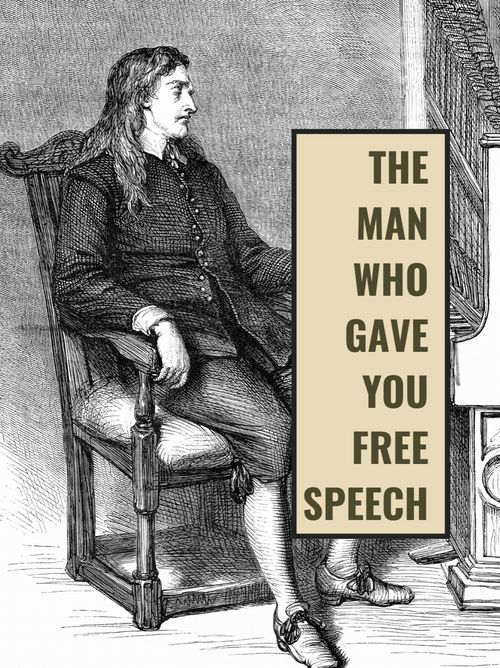How John Milton argued for free speech in the 17th century
Dec 10, 2021 · 2 mins read
0
Share

Introduction. Today, John Milton is best remembered for his epic poem Paradise Lost. However, in his own lifetime, Milton was known for his political tracts. Areopagitica, a pamphlet where he argued for free speech and free press, became the most influential of the lot👇
Save
Share
Milton was denounced for heresy for his pamphlets on divorce. Therefore he had a personal stake in the subject of free expression of ideas. In this famous tract, Milton argues that books should be "examined, refuted, and condemned" when found wanting and not pre-banned.
Save
Share
Milton argued that Ancient Greece and Rome, the wellspring of Western Civilization, didn't license and ban books before publication. To 17th century Protestant England, Milton cunningly argued that pre-publication licensing was a catholic practice introduced during inquisition.
Save
Share
Acquiring wisdom is not a straightforward process. It requires stretching the mind in all directions, and that takes reading "books of all sorts." Encountering heresy can point a reader to what is right through the power of contrast.
Save
Share
Books aren't a collection of inert papers stapled together; they preserve "as in a vial the purest efficacy and extraction of a living intellect." Killing a book kills not just a man's mental labor but "reason itself." It insults the conscience and free will that God gave humans.
Save
Share
An opinion must not be banned just because it is unformed or contrary to received wisdom. Milton write: "Opinion in good men is but knowledge in the making." The settled certainty of knowledge can't be reached without the contentious paths of varied opinions.
Save
Share
Banning problematic books won't actually stop the spread of "bad" ideas: "Who shall silence all the airs and madrigals that whisper softness in chambers?" Therefore, the policy of censuring books before publication fails at the task it sets to achieve.
Save
Share
Milton asks: Who can argue that we've reached the highest truths and should "pitch our tent" here? There are higher truths and more sublime visions to be discovered, and banning ideas clogs up the pathways we can use to travel to higher ground.
Save
Share
The truth must fight falsehood in the open: "I cannot praise a fugitive and cloistered virtue, unexercised and unbreathed, that never sallies out and sees her adversary, but slinks out of the race where that immortal garland is to be run for, not without dust and heat."
Save
Share
Bottom line. Milton wrote before his time. Areopagitica went on to become the most influential political tract ever written in favor of free speech, and has been cited in multiple US supreme court judgements.
Save
Share
0